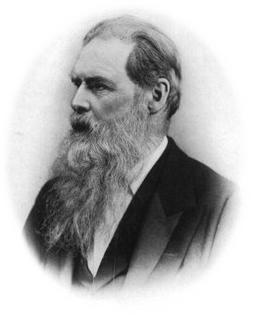エドワード・タイラー:定義とその受容
Edward Burnett Tylor, 1832-1917

エドワード・タイラー:定義とその受容
Edward Burnett Tylor, 1832-1917

解説:池田光穂
「文化」の定義(E・タイラー:Edward Burnett Tylor, 1832-1917)「文化あるいは文明とは・・社会の成員として の人間(man)に よって獲得された知識、信条、芸術、法、道徳、慣習や、他のいろいろな能力や気質(habits)を含む複雑な総体である」
(→原文は、「文化の定義」データを参照のこと) タイラーの「文化」の定義の引用における誤用の問題を考えてみましょう。それに対峙するR・ベネディクトの文化概念(「粘 土のカップ」も含めて)を検討し、その可能性と限界について考えてみます(後述)。
・文化の「定義」(E・タイラー)E.B.Tylor(1832-1917)
「文化あるいは文明とは、そのひろい民族誌学上の意味で理解されているところでは、社会の成 員としての人間(man)によって獲得された知識、信条、芸術、法、道徳、慣習や、他のいろいろな能力や習性(habits)を含む複雑な総体である。」
【原文】
"Culture and Civilization, taken in its wide ethnographic sense, is that complex whole which includes knowledge, belief, art, morals, law, custom, and any other capabilities and habits acquired by man as a menmber of society."
Edward Burnett Tylor,Capter 1.of "Primitive Culture"(London: John Murray & Co.,1871, 2 vols.)pp.1-25.;E.B.Tylor(1832-1917)[ただし、引用は次の文献による。Fried, Morton H.,ed.1968, Readings in anthropology, 2nd ed.,vol.II: Cultural Anthropology, New York: Thomas Y.Crowell Company, p.2]
1871 タイラー『未開文化 』Primitive Culture: researches into the development of mythology, philosophy, religion, language, art and custom』
Taylor, Primitive Cultur(1920年版)の冒頭のパラグラフが有名な彼の「文化」の定義であり、以下のようになっている。
"CULTURE or Civilization, taken in its wide ethnographic sense, is that complex whole which includes knowledge, belief, art, morals, law, custom, and any other capabilities and habits acquired by, man as a member of society. The condition of culture among the various societies of mankind, in so far as it 'is c1.pable of being investigated on general principles, is a subject apt for the study of laws of human thought and action. On the one hand, the uniformity which so largely pervades civilization may be ascribed, in great measure, to the uniform action of uniform causes: while on the other hand its various grades may be regarded as stages of development or evolution, each the outcome of previous history, and about to do its proper part in shaping the history of the future. To the investigation of these two great principles in several departments of ethnography, with especial consideration of the civilization of the lower tribes as related to the Civilization of the higher nations, the present volumes are devoted" (Tylor 1920:1, Vol. 1).
1884 タイラー、オックスフォード大学人類学教授就任[→この時期のこと]
・タイラーの文化概念の利点と限界
タイラーの文化概念の便利なところは、人間のつくりあげたものは、具体から抽象、創造、伝 承、破壊にいたるまで、人間の活動のすべてを包括できるという点にあります。これは、(1)文化にはさまざまな要素があり、(2)それらの要素はお互いに 絡み合い、従って(3)文化はその総体から捉えるべきである、という視点を、当時の西洋世界に提示したことになります。
他方で、その欠点は、文化とは人間が作り上げ維持しているもの<すべて>を枚挙しないかぎり 理解できないことになります。しかし、これまでの文化についてのさまざまな記述がその社会の全体を枚挙的にあげたものではないし、その部分において全体を 表象することができるという経験的事実があります。また、異なった社会にも相違する部分と異なった部分があり、文化はそのどちらをさすのか不明瞭である点 など、理論的な精確さ欠いているということも指摘できます。
・タイラーの文化概念の継承者
タイラーの文化概念の継承をしたのは、英国においては『人類学におけるノートと質問(Notes and Queries on anthropology)』という 人類学調査ハンドブック(タイラーじしんも執筆者の一人です)や、アメリカ合州国のジョージ・ペーター・マードックと、彼に関連する一連の学派のプロジェ クト(HRAF, Human Relations Area Files:フラーフと呼ばれます)などです。
英国の機能主義の伝統においては、マリ ノフスキー(1922)は『人類学のノートと質問』に対しては懐疑的かつ批判的であったのに対して、ラドクリフ=ブラウンや彼がアメリカ合州国で教鞭(1931-37)をとってい たシカゴ大学社会学部では、その枚挙的な文化項目の情報の蓄積に関心をもつことを、学生に勧めており、この方法論が(どちらかというと)重視されていまし た。
リンク
文献
その他の情報